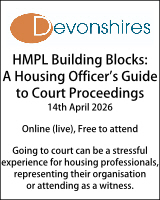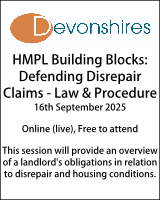SPONSORED

Unlocking legal talent

How hair strand testing should be instructed for family court proceedings
Webinars
Wardship and Inherent Jurisdiction: Decisions involving competent 17-year-olds
Graeme Bentley considers a recent High Court decision in which wardship and the court’s inherent jurisdiction were used to determine the residence of a competent 17-year-old, highlighting the interaction between a child’s wishes and parental Article 8 rights.
- Details
The judgment of Mr Justice McKendrick in London Borough of X v Mrs Z, Mr E, Ze (By his Children's Guardian) [2025] EWHC 2040 (Fam), 2025 WL 02174690 illustrates a number of points pertinent to 17-year-olds, an area where many professionals struggle with the legal position.
Background
The local authority sought removal of the subject, ZE, from the care of his mother when he was 16 years and 11 months old. Amidst a number of concerns was a heart condition for which he was said not to have been seen since 2019. He was removed (by eight police officers) days before his 17th birthday. The Local Authority, upon his reaching 17 years, immediately applied to make him a ward of court in order to determine where he should live. The effect of making a wardship application on C66 is that the child immediately became a ward, so that jurisdiction arose as soon as the application was lodged [15]. The Judge then continued the wardship as soon as the case came up for hearing.
Legal framework
The Judge helpful cites paragraph 17 of Practice Direction 12D, which is relevant in these circumstances:
1.1 "It is the duty of the court under its inherent jurisdiction to ensure that a child who is the subject of proceedings is protected and properly taken care of. The court may in exercising its inherent jurisdiction make any order or determine any issue in respect of a child unless limited by case law or statute. Case law establishes that such proceedings should only be commenced exceptionally where it is clear that the issues concerning the child should not be resolved under the Children Act 1989, for example, for reasons of urgency, of complexity or of the need for particular judicial expertise in the determination of a cross-border issue. For a review of the relevant case law and principles, see In the matter of NY (A Child) [2019] UKSC 49.
1.2 The court may under its inherent jurisdiction, in addition to all of the orders which can be made in family proceedings, make a wide range of injunctions for the child's protection of which the following are the most common –
(a) orders to restrain publicity;
(b) orders to prevent an undesirable association;
(c) orders relating to medical treatment;
(d) orders to protect abducted children, or children where the case has another substantial foreign element; and
(e) orders for the return of children to and from another state.
1.3 The court's wardship jurisdiction is part of and not separate from the court's inherent jurisdiction. The distinguishing characteristics of wardship are that –
(a) custody of a child who is a ward is vested in the court; and
(b) although day to day care and control of the ward is given to an individual or to a local authority, no important step can be taken in the child's life without the court's consent."
At [19], the Judge says that he has received no submissions on the legal background as it has been assumed that he can make a residence decision, and that this troubles him somewhat as CA 1989 section 31(3) prevents him from using wardship to make care orders.
At [21] he says that the test is of welfare and that he does not have to make findings of fact in order to justify the Article 8 interference. He follows this with some case authorities on Gillick competence, which he believes make it easier to justify intervention against a parent where (as here) the child is competent.
Analysis and implications
The Judge approaches his task at [26] as follows:
a. ZE has capacity pursuant to the Mental Capacity Act 2005 to decide where to reside;
b. Mrs Z's rights fall to be considered, but any interference in her Article 8 ECHR rights to respect for a family life, to determine where ZE should live and for him to live with her, requires only limited justification to avoid a violation of her rights;
c. ZE retains his liberty to decide where to live; I am not asked to restrict or deprive him of his liberty;
d. in deciding where it is in his best interests to live, ZE's welfare is my paramount consideration, paying considerable regard to his ascertainable wishes and feelings;
e. it is not necessary for me to make findings of fact to decide where it is in ZE's best interests to live as I am neither depriving him of his liberty nor cutting across his mother's 'right' to decide where and with whom he should live, given his age and capacity;
f. I will, however, determine the facts, so that the background of what has happened is clear to ZE, and also so the facts are clear to the applicant local authority.
The Judge accepts at [27] that his role here is limited and that “To a large extent I consider I am providing guidance to ZE. The court is at the outer reaches of its powers.” In the same paragraph he expresses some doubts about the test of exceptionality in PD 12D, given that this is not a case for deprivation of liberty and that mother’s rights are limited against the wishes of a capacious child. However, he is persuaded that ZE welcomes the decision making of the court and that he does not seek to challenge the decisions that are being made in wardship.
The Court went on to make findings as to the mother’s parenting, chiefly on undisputed factual issues. It determined that it was in ZE’s best interests to continue living with his father and gave indications as to the appropriate level of contact and as to the issue of a passport to ZE. The wardship was continued to a one-hour review hearing in October 2025.
What is particularly interesting here is:
- The commencement of care proceedings in order to secure removal before it became impossible for the court to make a care order or to continue an interim care order. The Court can, incidentally, continue care proceedings commenced before the 17th birthday in order to make case management decisions, even though the power to make a care order has been lost - see Re Q (Child: Interim Care Order: Jurisdiction) [2019] EWHC 512 (Fam).
- The attempt to use wardship to continue continued removal post 17 years. No-one appears to have disputed this, but the Judge clearly had some doubts when statute prevents care proceedings post 17 years.
- If this had been seen as an attempt by the local authority to be seeking the equivalent of a care order or to be requiring ZE to be accommodated, the attempt would have fallen foul of CA 1989 section 100(2). The difference here appears to have been that it was intended that he should live, in accordance with his own wishes, with his father.
- The greater willingness to interfere with mother’s Article 8 rights in light of the wishes of a competent child and, in particular, the question mark on the need for fact finding. It is interesting that the court went on to make findings in any event.
- The court’s acknowledgment of the limitations of its role here but its willingness to give guidance as the subject hoped it would do.
It may be interesting to compare the Court’s willingness to use the inherent jurisdiction and wardship to involve itself in the care arrangements of a competent 17-year-old child in accordance with his wishes (as here) with its recent refusal to do so in Kent CC v Mother [2025] EWHC 1974. In this case a competent child was accommodated under section 20 at his own request, and the court was clear that it could not, and should not, compel his move to a therapeutic placement despite the local authority’s concerns for his safety.
Key takeaways
- It may not be “too late” simply because the child is about to reach 17 years with insufficient time for care proceedings.
- Wardship may in limited circumstances be used post-17 to support a family arrangement or the wishes of a competent child to which considerable regard will be given. It cannot be used as a substitute for a care order to compel a plan for local authority accommodation.
- If both parents are providing an informed s.20 consent, supporting the proposed local authority action, it may still be possible in limited circumstances to override the child’s wishes. If they are not, it may be impossible to secure the local authority’s plans (see for example McDonald J in A City Council v LS & Ors (Secure Accommodation Inherent Jurisdiction) [2019] EWHC 1384 (Fam)
- Detailed fact-finding may not always be required where prompt disposal is needed.
Graeme Bentley is Principal Solicitor in Invicta Law’s Child Protection team and an Accredited Member of the Law Society’s Children Panel.
Senior Lawyer - Contracts & Commercial
Trust Solicitor (Employment & Contract Law)
Trust Solicitor (Public & Healthcare Law)
Contracts & Procurement Lawyer
Lawyer - Property
Locums
 Institutional landlord series: Possession – High Court Enforcement - 5 Pump Court
Institutional landlord series: Possession – High Court Enforcement - 5 Pump Court
22-10-2025 4:00 pm
Online (live)
 Institutional landlord series: Costs Recovery and Legally Aided Parties - 5 Pump Court
Institutional landlord series: Costs Recovery and Legally Aided Parties - 5 Pump Court
05-11-2025 4:00 pm
Online (live)
 HMPL Building Blocks: Tenancy Management – Assignment, Mutual Exchange and Succession - Devonshires
HMPL Building Blocks: Tenancy Management – Assignment, Mutual Exchange and Succession - Devonshires
12-03-2026
Online (live)
 Unpicking the Procurement Act Episode 2: Exclusion and Debarment - 39 Essex Chambers
Unpicking the Procurement Act Episode 2: Exclusion and Debarment - 39 Essex Chambers
On Demand
Online (pre-recorded)
 Unpicking the Procurement Act Episode 1: Overview and New Procedures - 39 Essex Chambers
Unpicking the Procurement Act Episode 1: Overview and New Procedures - 39 Essex Chambers
On Demand
Online (pre-recorded)
 Unpicking the Procurement Act Episode 3: Contract Modification - 39 Essex Chambers
Unpicking the Procurement Act Episode 3: Contract Modification - 39 Essex Chambers
On Demand
Online (pre-recorded)
 Unpicking the Procurement Act Episode 4: Challenges and Remedies - 39 Essex Chambers
Unpicking the Procurement Act Episode 4: Challenges and Remedies - 39 Essex Chambers
On Demand
Online (pre-recorded)















































































 CUBAS Comprehensive Training & Licencing (Swindon), October 2025
CUBAS Comprehensive Training & Licencing (Swindon), October 2025  Property Law Roadshow 2025 - Cardiff - St John's Chambers
Property Law Roadshow 2025 - Cardiff - St John's Chambers  Planning Day 2025 - Cornerstone Barristers
Planning Day 2025 - Cornerstone Barristers  Annual Fraud Conference 2025 - Oxford Investigation Service
Annual Fraud Conference 2025 - Oxford Investigation Service  Ivy Legal - Certificate in Planning Enforcement
Ivy Legal - Certificate in Planning Enforcement